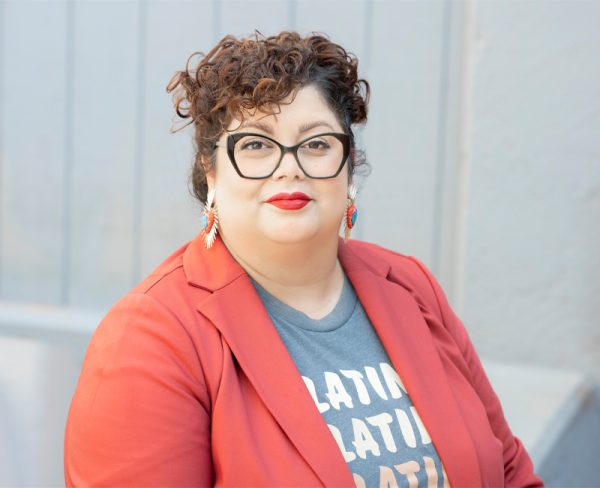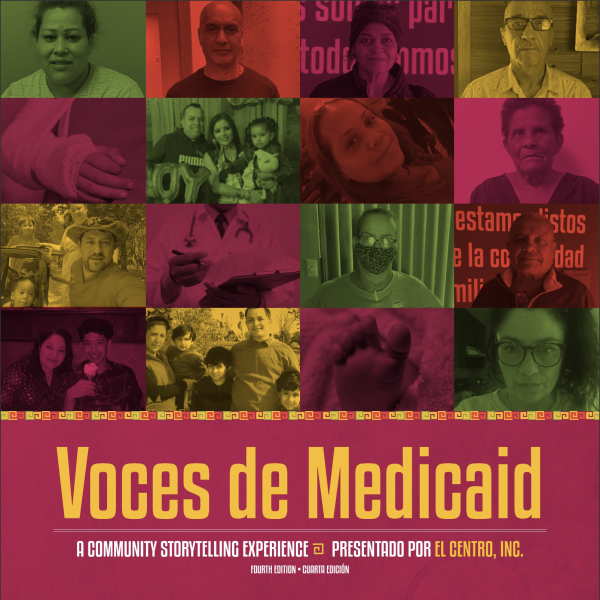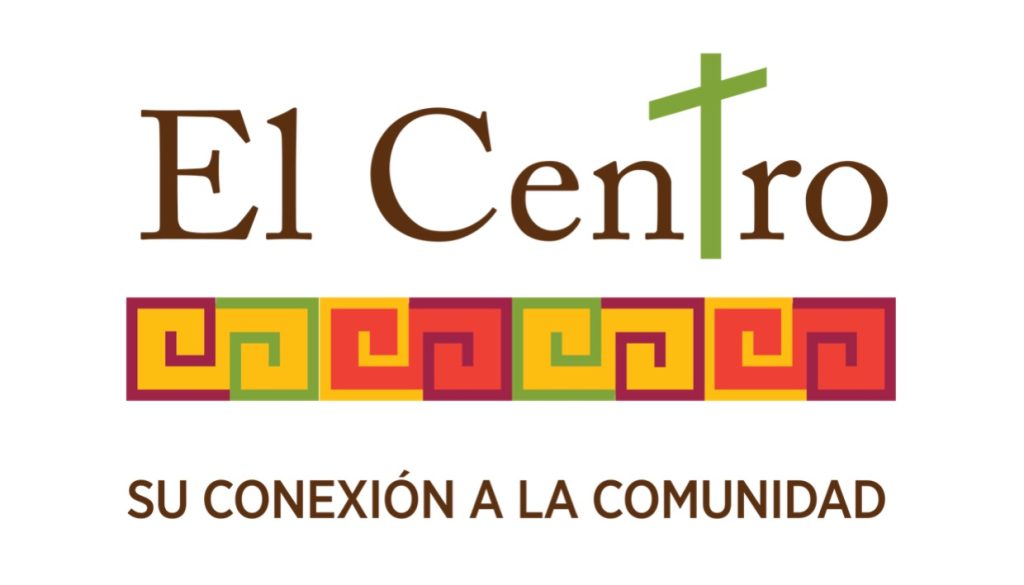It is easy to get inspired by the power of storytelling, but often putting it into practice feels much more challenging. El Centro, in Kansas City Kansas, has found many fantastic ways to create storytelling culture in all they do.
Erica Andrade is the President and CEO of El Centro, which is a Latino-led and Latino-serving organization in their 46th year of services in early education, health, and economic empowerment.
I had a chance to Zoom with Erica after working together as a part of the Bank of America Neighborhood Builders program. Erica shared with me how she’s quickly and effectively used Goodman Center trainings on sharing your story of self and ethical storytelling. I had to hear more!
Kirsten
Erica, when I saw you in Charlotte, you were telling me that you have already begun using the Story of Self and Public Narrative model with your team. How have you done that?

Erica Andrade
Erica
In a lot of the work that we do, especially in our advocacy work, the stories of the clients that we serve are not in the mainstream.
So, using that method of the story of me, the story of us, and the story of why now, which is the call to action, that’s a great tool to use.
Kirsten
That’s what public narrative is all about! That’s awesome.
Erica
So, how do we get community issues and their stories into rooms with the legislators, to the Commissioners, into the school districts so that they’re able to tell their story and the things that are happening to them and their community? How can they have a sense of “My voice matters” When it comes to civic engagement, and addressing policies that affect me?
 One example of how we do this is [a project] called Voces de Medicaid. This is the 5th year of advocacy work that we do around Medicare and Medicaid exposure. There have been four volumes of relaying stories from our clients’ perspective. We publish them in a hardcover book, so they can see where their words and their stories are going, and then we send it out to state legislators, the governor, and other advocates.
One example of how we do this is [a project] called Voces de Medicaid. This is the 5th year of advocacy work that we do around Medicare and Medicaid exposure. There have been four volumes of relaying stories from our clients’ perspective. We publish them in a hardcover book, so they can see where their words and their stories are going, and then we send it out to state legislators, the governor, and other advocates.
Kirsten
Wow, 5 years of this program. So, obviously it is working well.
Erica
We have found it the most helpful when engaging with our community and showing the importance their voices and stories can have when building a base to help advocate for policy change. They can see this as a part of the larger state-wide initiative to help advocate for Medicaid expansion.
Kirsten
How do you equip the staff at El Centro to use these programs?
Erica
We want to make it less scary and make sure that everybody at El Centro can be a part of [storytelling.] It even starts at onboarding. Regardless of what your job title or role in the organization is, everybody that works with El Centro is an advocate. The best way you can be an advocate for a client is to relay that story.
Kirsten
How does storytelling show up in onboarding? Is it part of the training?
Erica
Yes, for onboarding we use it to help our employees see the bigger picture of what our purpose is. How and why El Centro was founded and the importance of the work they do and how that might only be a piece of the puzzle but without their part the whole picture would be in focus. If they understand the strength of where we came from, they are more dedicated and passionate about the work they do.
Kirsten
It’s clear from all the ways I see story used on your website and from the focus you have put on communications and outreach that this is a deep value for you. Where does that come from?
Erica
Honestly, I think a lot of it comes from our culture. Our community and clients use word of mouth. “My friend told me. My cousin told me. I heard.” If we want to engage with the community, that only works through stories. This happened to me and that’s what made me become engaged.” “This is why I’m out here now talking to you, because I know that this would have really helped me if somebody had told me this.” It’s all relational. That’s why it works so well. That’s why for El Centro, it’s literally the capstone of how we’re able to function: it’s through personal relationships and stories.
Check out all the ways Erica and her amazing team at El Centro are leveraging the power of storytelling with Voces de Medicaid, as well as a public awareness campaign they did around Covid-19 to promote vaccination, social distancing and seeking support around financial and emotional loss.
El Centro is an excellent model for building and empowering community with stories. Thanks so much to Erica Andrade for taking the time to share part of their story with me.
